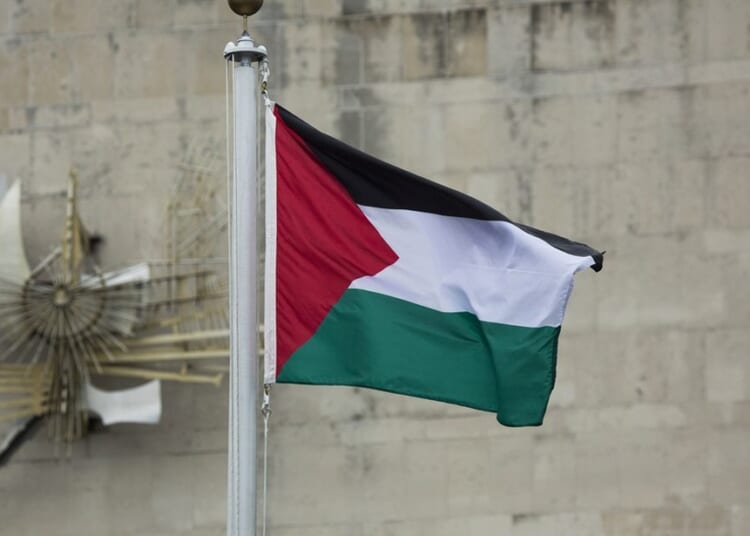The Ann Arbor Public Schools board advanced a resolution that calls for a ceasefire in the Israel-Hamas war. The resolution encourages teachers to discuss the war in classrooms.
This is thought to be among the first times that a U.S. public school system has made such a statement about an international conflict. Tensions are running high for all that are involved. The meeting Wednesday lasted over five hours, stretching into the early hours of Thursday. About 120 people gave public comments on support and opposition to the resolution.
Ann Arbor is a liberal city west of Detroit. It is the home of the University of Michigan. The school district has about 17,000 students.
The war has created chaos with protests on college campuses across the country. It is very unusual for the tension to trickle down to a city’s public school system, yet here we are. The City of Ann Arbor has approved a ceasefire resolution, as other American cities have done, but the resolutions have no legal authority. They are a way for communities to voice an opinion on the Israel-Hamas war.
The resolution passed in Ann Arbor was one of the first times that a public school system in Michigan had considered such a statement, said Don Wotruba, executive director at Michigan Association of School Boards, prior to the scheduled vote.
“What they’re thinking about doing would be pretty rare, if not the first time. Particularly as it’s related to a more international situation,” Wotruba said.
The district “expresses support for a bilateral ceasefire in Gaza and Israel,” according to the resolution, and “encourages educators within the Ann Arbor School District to facilitate informed and respectful dialogue about the conflict.”
The resolution passed. The school board is comprised of seven members. Four members voted in favor, and two abstained from the vote. One member, Rima Mohammad, a Palestinian American, has lead the push for this resolution. “This resolution says that kids who have names like mine are seen, heard and valued,” Mohammad said just prior to the vote.
The action has not gone down easily. There is a petition in opposition to the resolution with about 2,000 signatures on it. Parents and others say that the resolution has taken resources away from matters more important to the community, like hiring a new superintendent, a position that is vacant now.
Opinions are varied, as in so many places in the United States, over voicing an opinion on the war. Parents are speaking out about the school board weighing in on an international crisis. Parents say the resolution does nothing to improve the lives of the children in the district. Some teachers spoke out in favor of allowing discussions about the war in the classroom.
“This resolution does not help advance the quality of life of one single child in this district,” said Daniel Sorkin, a parent of two students in the district who spoke out against the resolution Wednesday.
Tasneem Madani, a student teacher in the district, supported the resolution and stressed its importance, saying that “our students are watching us.”
“It is my responsibility, particularly as an English teacher, to help students develop the skills to engage in informed academic dialogue in safe spaces,” Madani said at Wednesday’s meeting.
I can’t help but think this resolution is just another way to help teachers bring in subjects that are used as indoctrination, not instruction. An English teacher, for example, doesn’t seem like the correct instructor to be talking about the Israel-Hamas war. It seems to me that the war would fall more into the scope of a history class, for example. Michigan has a large Muslim population and they have threatened to not support Joe Biden’s re-election over his support of Israel. Why is the school board dragging the students into the dispute among adults?
Other school districts have considered such resolutions since the war began. The Oakland (CA) Unified School District considered such a resolution, which also called for the release of the hostages but it has not been passed. Ann Arbor is divided on the war. The war is a divisive issue everywhere.
Nearly 6,500 Jewish students attend the University of Michigan, a total of 15% of its entire student population, according to the University of Michigan Hillel. A significant number of Arab American students also attend the university, which is near one of the largest Muslim populations in the nation.
In December, University of Michigan President Santa Ono barred students from voting on two resolutions related to the Israel-Hamas war, calling them “controversial and divisive.” The Michigan chapter of the Council on American-Islamic Relations accused the university of suppressing free speech at the time.
“The proposed resolutions have done more to stoke fear, anger and animosity on our campus than they would ever accomplish as recommendations to the university,” Ono said in an online post at the time.
If such a resolution is not allowed on the college level, why bring it into lower levels of education? It’s more of what we have seen in recent years. Students are being indoctrinated into progressive ideology at young ages. I think it is more proof that schools are politicized to advance the agenda of adults in the community. It is divisive and separates people needlessly. This smacks of the activist teacher unions that are eagerly bringing in social issues and politics instead of concentrating on core subjects in school. Students have fallen behind in many important subjects, like math and reading, since the online learning fiasco during the pandemic. Schools should be concentrating on helping kids catch up on the basics.
A school board calling for a ceasefire in a war is meaningless. It serves to allow those who oppose it to publicly speak out. They can go to a demonstration for that. Leave feckless political actions out of the classroom.

